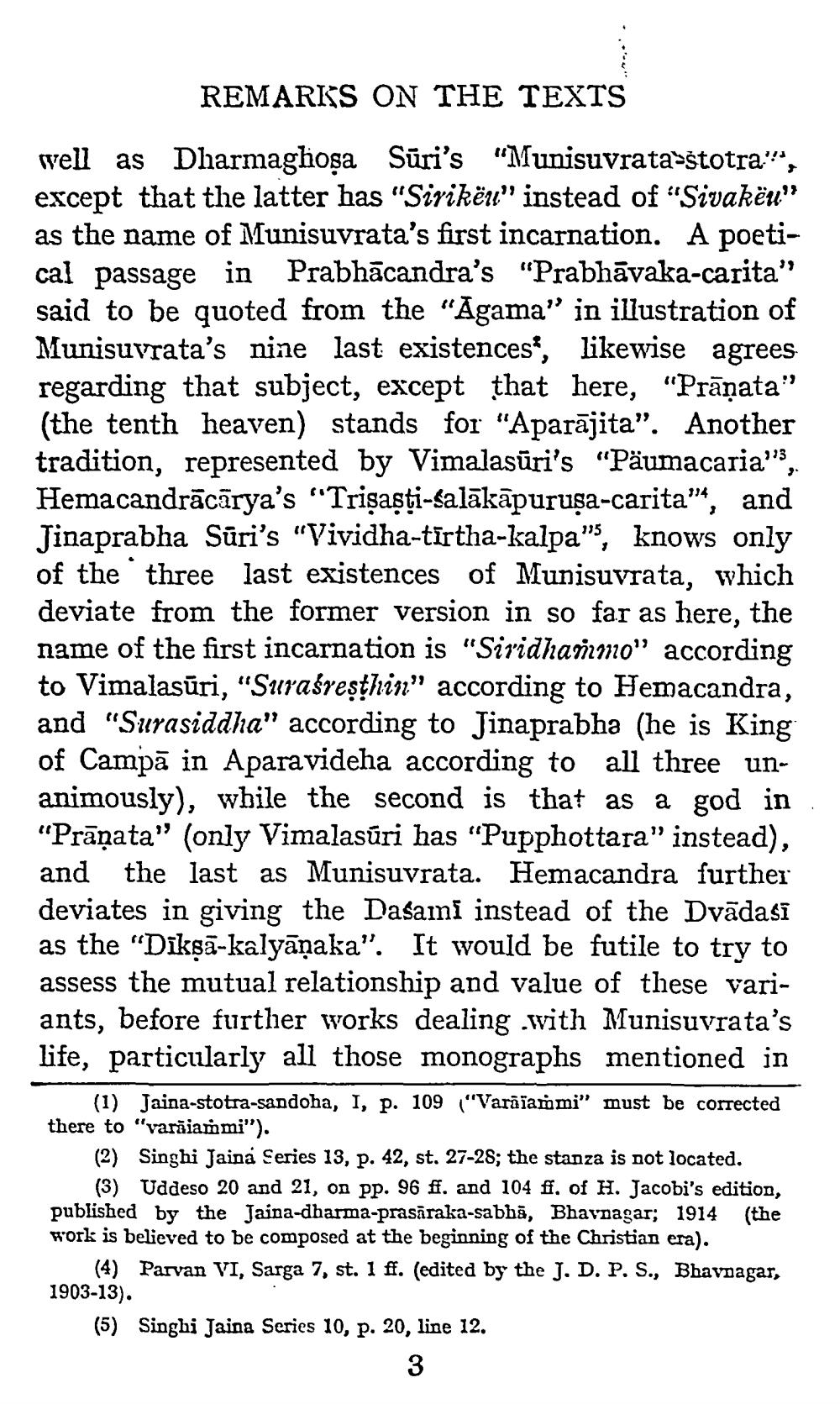________________
REMARKS ON THE TEXTS well as Dharmaghoşa Sūri's "Munisuvrata-štotra", except that the latter has "Sirikëne" instead of "Sivakëu" as the name of Munisuvrata's first incarnation. A poetical passage in Prabhācandra's "Prabhāvaka-carita" said to be quoted from the "Āgama” in illustration of Munisuvrata's nine last existences, likewise agrees regarding that subject, except that here, "Prāṇata" (the tenth heaven) stands for "Aparājita". Another tradition, represented by Vimalasūri's "Päumacaria's, Hemacandrācārya's "Trişaşti-salākāpuruşa-carita", and Jinaprabha Sūri's "Vividha-tīrtha-kalpa", knows only of the three last existences of Munisuvrata, which deviate from the former version in so far as here, the name of the first incarnation is "Siridhanmo” according to Vimalasūri, "Suraśreşthini” according to Hemacandra, and "Surasiddha" according to Jinaprabha (he is King of Campā in Aparavideha according to all three unanimously), while the second is that as a god in "Prāṇata" (only Vimalasūri has "Pupphottara" instead), and the last as Munisuvrata. Hemacandra further deviates in giving the Dasaini instead of the Dvādasī as the "Diksā-kalyāņaka”. It would be futile to try to assess the mutual relationship and value of these variants, before further works dealing with Munisuvrata's life, particularly all those monographs mentioned in
(1) Jaina-stotra-sandoha, I, p. 109 ("Varājammi" must be corrected there to "varāiammi").
(2) Singhi Jaina Series 13, p. 42, st. 27-28; the stanza is not located.
(3) Uddeso 20 and 21, on pp. 96 ff. and 104 ff. of H. Jacobi's edition, published by the Jaina-dharma-prasaraka-sabhā, Bhavnagar; 1914 (the work is believed to be composed at the beginning of the Christian era).
(4) Parvan VI, Sarga 7, st. 1 ff. (edited by the J. D. P. S., Bhavnagar, 1903-13).
(5) Singhi Jaina Series 10, p. 20, line 12.




